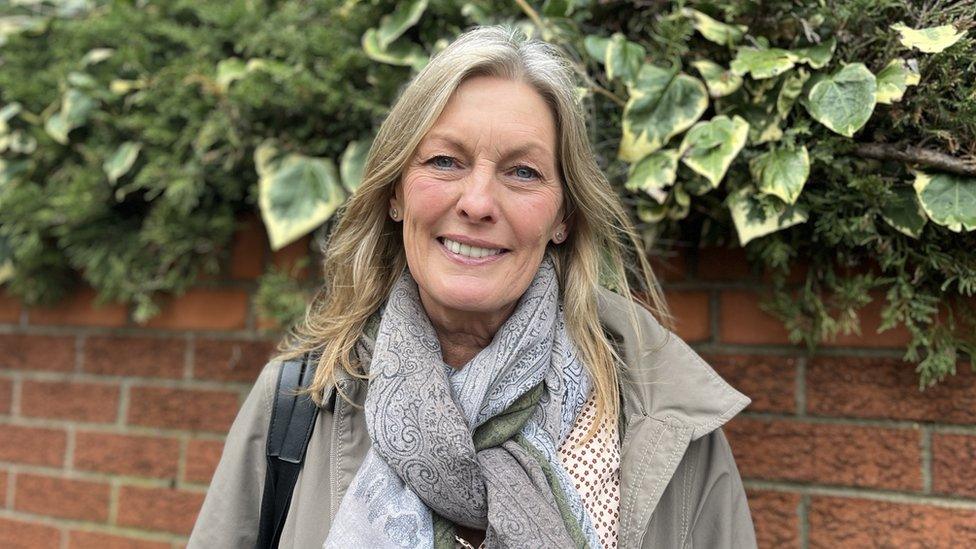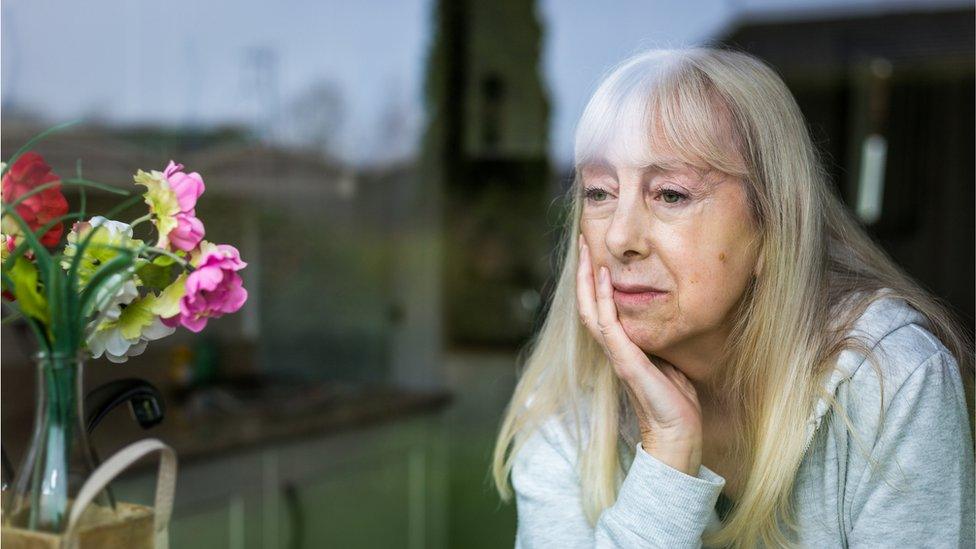Discovering my abusive partner's past 'saved my life'
- Published

Melissa Stockdale says accessing information through the Domestic Violence Disclosure Scheme prompted her to act
A woman whose partner abused and stalked her has said a scheme to share information about perpetrators' past behaviour undoubtedly saved her life.
Clare's Law, launched in March 2014, was named after Clare Woods, who was killed by her ex-partner in 2009.
Melissa Stockdale said she is "lucky to be alive" after she was "violently attacked" by the man she lived with.
She added that learning about his previous offences gave her "courage" to "get out of the situation".
Ms Stockdale had already left her partner and fled their home when she first contacted police via the Domestic Violence Disclosure Scheme - known as Clare's Law - in 2020, prompted by her daughter's concern for her welfare.
She said she was "bombarded" with photos, videos, messages and "sometimes 63 calls in a day" from her partner, who told her "I know where you are" and "I've seen you".
"You're looking over your shoulder and you think you see somebody who looks like that person. And then you get frightened," Ms Stockdale.
'Gas lighting'
At the time although she was "anxious" about her partner's behaviour, like many people experiencing abuse she had been made to believe she was at fault.
"He was using gas-lighting techniques and was trying to separate me from my family, and close off all the avenues where I could approach friends and neighbours."
Ms Stockdale also thought she was not the type of woman who this could happen to: "I was 60 years old. Shouldn't I know better? Why didn't I see it happening?"
She described that receiving the disclosure from police was a "validation".
"It was a release of emotions. It was like 'I'm not going mad. This is happening to me and it's happened before.'"
She acknowledged that while not all survivors of abuse report a good response from police, she had a very positive experience with both the Metropolitan and Suffolk forces.
It was important to her that she was not treated like a victim, and that officers listened to her story and told her: "We believe you. We see what's happening to you and we can help."
She was given an independent domestic violence adviser who helped her make a safety plan, and was referred to the charity Women's Aid.
Ms Stockdale said receiving the disclosure also helped her to get other legal protection, such as a restraining order and a Stalking Protection Order.
In May 2021, her partner was jailed for 17 months after admitting to stalking and causing alarm or distress, and was banned from contacting her for ten years.
'Gut instinct'
Ms Stockdale hopes the ten-year anniversary of Clare's Law would raise more public awareness, and she is keen that others use the scheme.
She said that anyone who has a "gut instinct" that something is not right with a partner should apply to the police for information. "You've got a right to know; you've got a right to ask about [your] partner's history."
Figures from the Office for National Statistics showed that "right to ask" applications to Suffolk Police have increased each year from 57 in 2017 to 337 in 2023.
The number of information disclosures has also gone up each year, but has not kept pace with the rate of applications, meaning the disclosure rate has fallen from 53% in 2017 to just 26% in 2023.
In a statement Suffolk Police said: "Clare's Law enables potential victims to take control of their life and make informed decisions about whether to stay with someone or not."
Anyone in Suffolk who wishes to submit a Clare's Law application can do so via Suffolk Police's website, external.

Got a story? Email eastinvestigationsteam@bbc.co.uk, external or WhatsApp 0800 169 1830. Follow East of England news on Facebook, external, Instagram, external and X, external.
Related topics
- Published10 February 2024

- Published8 February 2024
